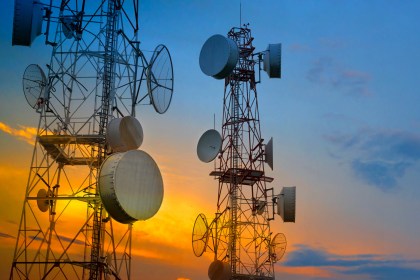Key stakeholders in the telecommunications sector have asked the Federal Government to safeguard Nigeria’s telecommunications infrastructure from cyber threats, theft, and vandalism, which are crucial for the country’s economic growth.
They also urged the government to take over the security of telecommunications infrastructure, which had now been designated as Critical National Infrastructure.
They stated that this action will resolve several issues encountered with sub-nationals regarding cable installations to enhance internet connectivity.
These stakeholders include telecommunications infrastructure companies, like IHS Towers, the Association of Licensed Telecom Operators of Nigeria, and the Nigerian Communications Commission.
The stakeholders spoke during a panel session sponsored by IHS Towers, Nigeria, titled, ‘Protecting Critical National Infrastructure: Securing Nigeria’s Telecommunications Sector for Sustainable Growth,’ at the just concluded 30th Nigerian Economic Summit in Abuja.
A statement from IHS quoting the Senior Vice President/Chief Corporate Services Officer, Dapo Otunla, said it became critical to strengthen core infrastructure driving Nigeria’s digital economy by safeguarding the country’s telecommunications infrastructure.
He said protecting telecommunications assets was vital to achieving the digital economy targets of the current administration and called for collaborative solutions for safeguarding these critical assets from vandalism, theft, and cyber attacks.
Otunla said, “By working together, we can develop a robust Critical National Information Infrastructure Protection Plan to secure the future of our telecommunications infrastructure,” adding that IHS was proud to be at the forefront of the drive.
“As we shape strategies for protecting Nigeria’s digital backbone, let us also focus on strengthening the ecosystem that drives national security and digital growth. Together, we can build a more secure, sustainable, and connected future for Nigeria.
“Our mission-critical communications infrastructure supports mobile network operators in providing wireless voice and data services to over 770 million people globally, driving national digital agendas and economic development.”
On his part, ALTON Chairman Gbenga Adebayo hailed the federal government for signing an executive order designating communication infrastructure as CNI, adding that the telecoms industry appreciates the impact this will have on the sector.
However, he said while the issuance of the order was a significant step, the objectives intended by the order would be undermined without the development and implementation of a comprehensive protection plan as stipulated.
He said, “Our collective national web is anchored on secure and resilient telecommunications infrastructure. Hence, the need for an efficient CNIPP cannot be overstated.”
He called for the creation of a secure, centralised, and up-to-date database of all physical telecoms infrastructure operated by telecoms companies and service providers.
Over the years, stakeholders in the Nigerian ICT sector have been calling on the government to designate telecom infrastructure as a critical national asset to address the persistent attacks on infrastructure across the country








